Investing
Baker McKenzie outlines shifting patterns of infrastructure funding in Africa
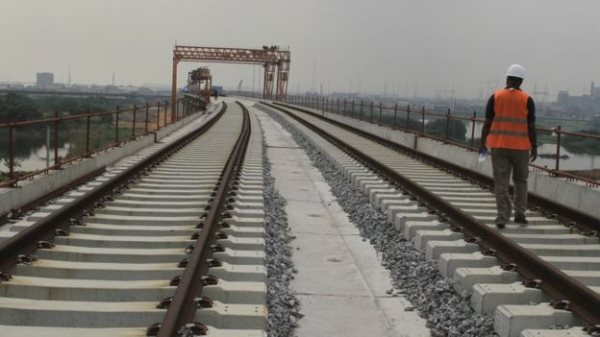
Baker McKenzie latest report – New Dynamics: Shifting Patterns in Africa’s Infrastructure Funding – shows the state of the African infrastructure market, and how the major global players’ approach infrastructure lending on the continent is changing. While the IJ Global data shows a decline in the value of infrastructure lending, it is expected that as economies recover, new types of financing will be unlocked.
The data
The report’s data shows that multilateral and bilateral lending into Africa has declined – with investment levels falling successively in 2019 and 2020 compared to peak levels seen after the financial crisis. In 2019, bilateral and multilateral lending into Africa amounted to USD 55 billion, which drops to USD 31 billion in 2020. Over the last six years, the decline is significant – deal values dropped from USD 100 billion in 2014 to USD 31 billion in 2020.
This slowdown in infrastructure investment was attributable to a number of factors, including the pandemic. Economic contraction has affected Nigeria and South Africa, meaning that the region’s largest economies have not been feeding in growth as in previous years. However, market fundamentals signal a region with underlying resilience and, as the global economy recovers, finance will be unlocked. There are already positive indicators of forthcoming investment. Commodity prices are rising and landmark deals are returning. For example, mining multinational Sibanye-Stillwater recently committed ZAR 6.3 billion to South African infrastructure projects.
The data also shows that deal tenor is contracting – from a high of 17 years in 2019 to 13 years in 2020. However, the long-term nature of infrastructure projects means that international partners have made lasting commitments to the region, which are unlikely to be abandoned despite immediate pressure on national finances.
China
Surprisingly, given the pandemic, the data shows that lending by Chinese banks into energy and infrastructure projects in Sub-Saharan Africa saw a small uplift in 2020, although deal values are well below their 2017 peak. In 2017, Chinese banks lent USD 11 billion to African infrastructure projects, which decreased to USD 4.5 billion in 2018, USD 2.8 billion in 2019 and USD 3.3 billion in 2020.
Simon Leung, Partner, Baker McKenzie Hong Kong, explains, “There has been a slowdown in the number of infrastructure deals from China. In the short-term, we expect to see more targeted lending – fewer projects of a higher quality using sophisticated structures – and new finance options, such as factoring, used to deploy Chinese capital into the region.”
International players
It is also clear that other international players have the region in their sights, with key political changes in the United States (US) and United Kingdom (UK) likely to see capital flow into Africa.
Michael Foundethakis, Partner and Global Head of Projects and Trade & Export Finance, Baker McKenzie Paris, notes, “The US hasn’t kept pace with Chinese lending into Africa. The recent change in administration is likely to renew focus on impact-building and financing strategic long-term projects in the region, but bankability and risk-sharing remain a priority for US lenders.”
Lodewyk Meyer, Partner, Baker McKenzie Johannesburg, notes further that, “The infrastructure funding gap is so large and of such strategic importance, it remains necessary to encourage international investment to fill it. African DFIs are very good at collaborating and I am encouraged by the actions of the new US administration, UK government and New Development Bank, in particular in their willingness to work with regional institutions in this regard. The UK is making a strong play for influence, investment and trade with Africa post-Brexit. Further to key summits held in 2020 and 2021, there are signs that finance will be redirected into Africa.”
Commercial banks
The report points to infrastructure gaps in energy provision, internet access and transportation that have resulted in an urgent imperative to identify and enable new sources of finance outside traditional lenders and international partners. Further to the expected return of multilateral and bilateral lending, there is room for evolution to bridge the funding-opportunity gap.
The report shows, however, that this vacuum is unlikely to be filled by commercial banks, noting that in 2020, just 84 projects were supported by commercial bank finance and their involvement in Development Finance Institution (DFI) and Export Credit Agency (ECA) deals continues on a downward trend.
Luka Lightfoot, Partner, Baker McKenzie London, explains, “Banks are likely to be focusing on managing liquidity, with lenders deploying capital selectively.”
DFIs and new financing solutions
Instead, local and regional banks, specialist infrastructure funds and private equity and debt are stepping in to collaborate with DFIs and access returns. This outlines the deepening DFI involvement in the infrastructure ecosystem at large, with DFIs increasingly anchoring the infrastructure ecosystem in Africa – serving a critical function for project finance as investment facilitator and a check on capital. This is because they can shoulder political risk and access government protections in a way that others can’t, enter markets others can’t and are uniquely capable of facilitating long-term lending.
The report explains how the amount of capital needed to fill the infrastructure gap is significant and DFIs can’t bridge it alone. Private equity, debt finance and specialist infrastructure funds are primed to enter the market, and multi-finance and blended solutions are expected to grow in popularity as a way to de-risk deals and support a broader ecosystem of lenders.
Lightfoot comments, “We expect to see an increase in non-bank activity in Africa in future as a result of new credit mitigation products come to market. We have seen an increase in appetite from established market participants, such as development banks, to create products that are not tied to existing arrangements that may have limited the type of finance available.”
A new era
Lamyaa Gadelhak, Partner and Co-head of Banking, Finance and Projects at Helmy, Hamza & Partners, Baker McKenzie Cairo,adds, “The pandemic represents the end of an era and the start of a new one. There will be a re-prioritization of funds and strategy through this lens. I expect to see more investments in the healthcare industry and connected infrastructure, as well as water related projects, to be top priority. We should also consider the impact of other factors aside from the pandemic. For instance, the African Continental Free Trade Agreement and what it needs to translate into increased cross-regional trends. I would expect development of transportation and logistics infrastructure focused projects to enable the acceleration of on-ground execution of intra-African trade.”
Emeka Chinwuba, Partner, Baker McKenzie New York, and Banking, Finance & Major Projects Group member, concludes, “Last year was a relatively difficult year across jurisdictions and for investors – with considerable uncertainty and change in the ways in which we do business. Shutdowns had a depressant effect on the infrastructure market, as deals in the pipeline were delayed and projects halted as a result of COVID-19. Full vaccination in Africa is still quite a long way off comparatively, so we can’t expect a full and fast return to normal activity. But we’ve reached the bottom, and the only way is up.”
Article by Baker McKenzie
Investing
Shelter Afrique Development Bank and Afreximbank Forge Strategic Partnership to Unlock US$1 billion in investments
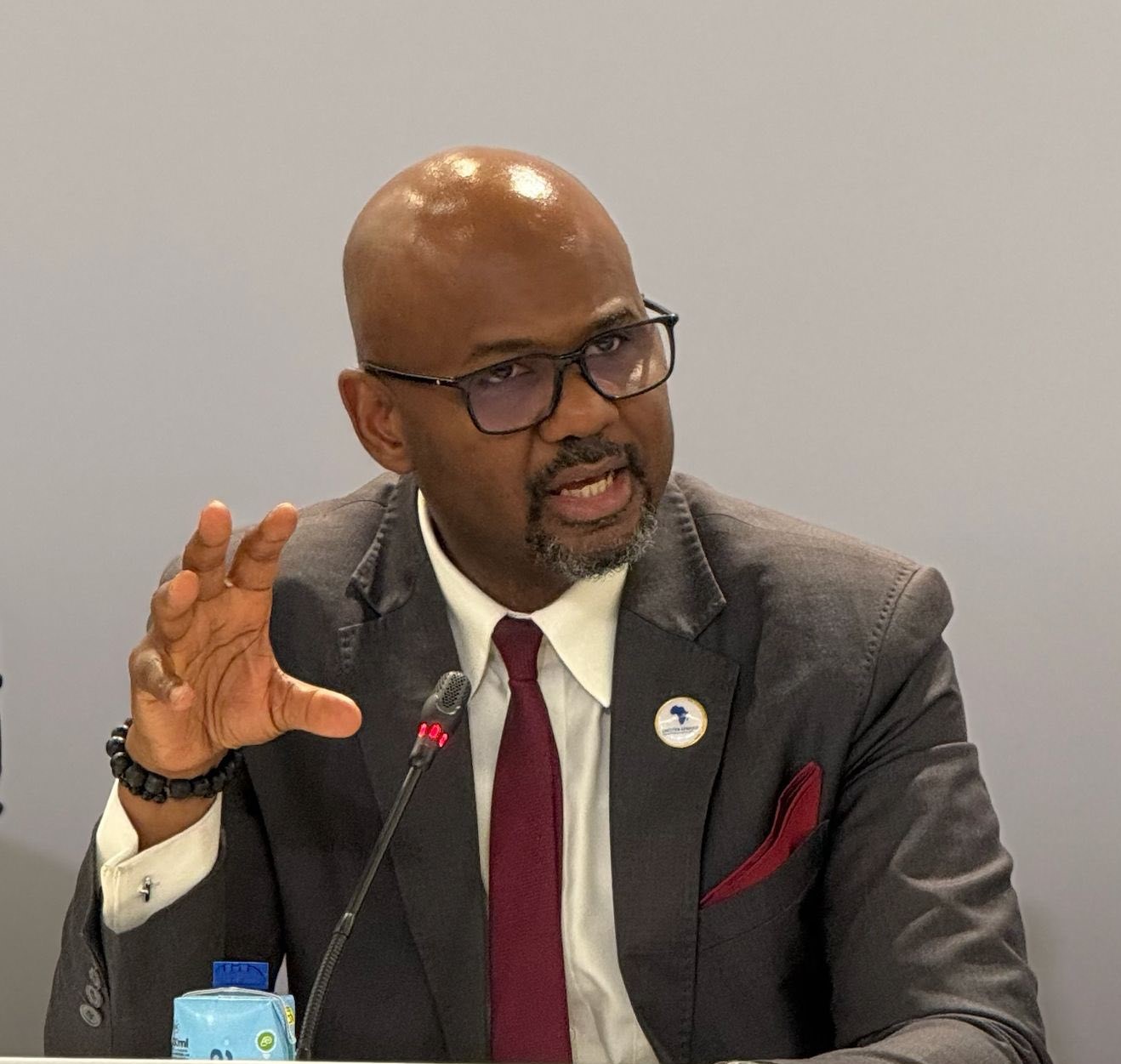
Shelter Afrique Development Bank (ShafDB) and African Export-Import Bank (Afreximbank) have signed a groundbreaking Joint Project Preparation Facility (JPPF) Framework Agreement. This strategic partnership aims to unlock a cumulative investment value of at least US$1 billion and is set to significantly transform housing and urban development across the continent and boost trade and investment.
Signed on the sidelines of the ongoing fourth Intra-African Trade Fair (IATF2025) by Mr. Thierno-Habib Hann, Managing Director and CEO, ShafDB, and Ms. Oluranti Doherty, Managing Director, Export Development Afreximbank, the agreement aims to provide early-stage project preparation financing, propelling projects from concept to bankability efficiently and effectively.
The JPPF will primarily support priority sectors including building and construction, housing, healthcare, hospitality and tourism, industrial, manufacturing of building materials, commercial and residential infrastructure, and logistical platforms such as industrial zones and special economic zones.
In addition to financing, the JPPF also incorporates a robust capacity-building programme aimed at enhancing the project preparation skills of ShafDB staff, empowering them with essential skills to develop bankable and impactful projects.
Commenting on the partnership, Ms. Doherty, stated: “We are thrilled to collaborate with Shelter Afrique Development Bank to accelerate sustainable urban development across Africa. This partnership aligns with our shared vision of promoting economic growth and enhancing the quality of projects on the continent. By combining ShafDB’s expertise in housing and urban development and Afreximbank’s extensive experience in project preparation, we are poised to unlock new opportunities and deliver transformative projects in critical sectors that will amongst other benefits establish economic hubs and platforms that will promote trade and tradeable services. The JPPF will act as a catalyst for private sector investment, leading to substantial socio-economic development across the continent. Furthermore, our capacity-building programme will equip ShafDB staff with essential project preparation skills, ensuring sustainable project pipelines in the years to come.”
Commenting on the signing, Mr. Thierno-Habib Hann, Managing Director, ShafDB said: “Our sector faces two major structural challenges: the lack of reliable data and the insufficient preparation of projects. At ShafDB, we have already taken bold steps to address the first challenge through our VIRAL model — a data-driven framework designed to provide actionable insights and support evidence-based decision-making in housing and urban development. Today, we are proud to tackle the second challenge through this strategic partnership with Afreximbank. The Joint Project Preparation Facility will enable us to move projects from concept to bankability with speed and precision, unlocking over US$1 billion in investments. This is a transformative step toward building resilient, inclusive, and sustainable cities across Africa.”
Both Afreximbank and ShafDB are members of the Alliance of African Multilateral Financial Institutions (AAMFI), underscoring their commitment to collaboration and innovation in fostering economic development and growth across the continent.
The IATF2025 held from 4 to 10 September, is projected to have resulted in the conclusion of trade and investment deals valued at over US$44 billion.
Investing
Swedfund invests for improved access to financial services in Africa
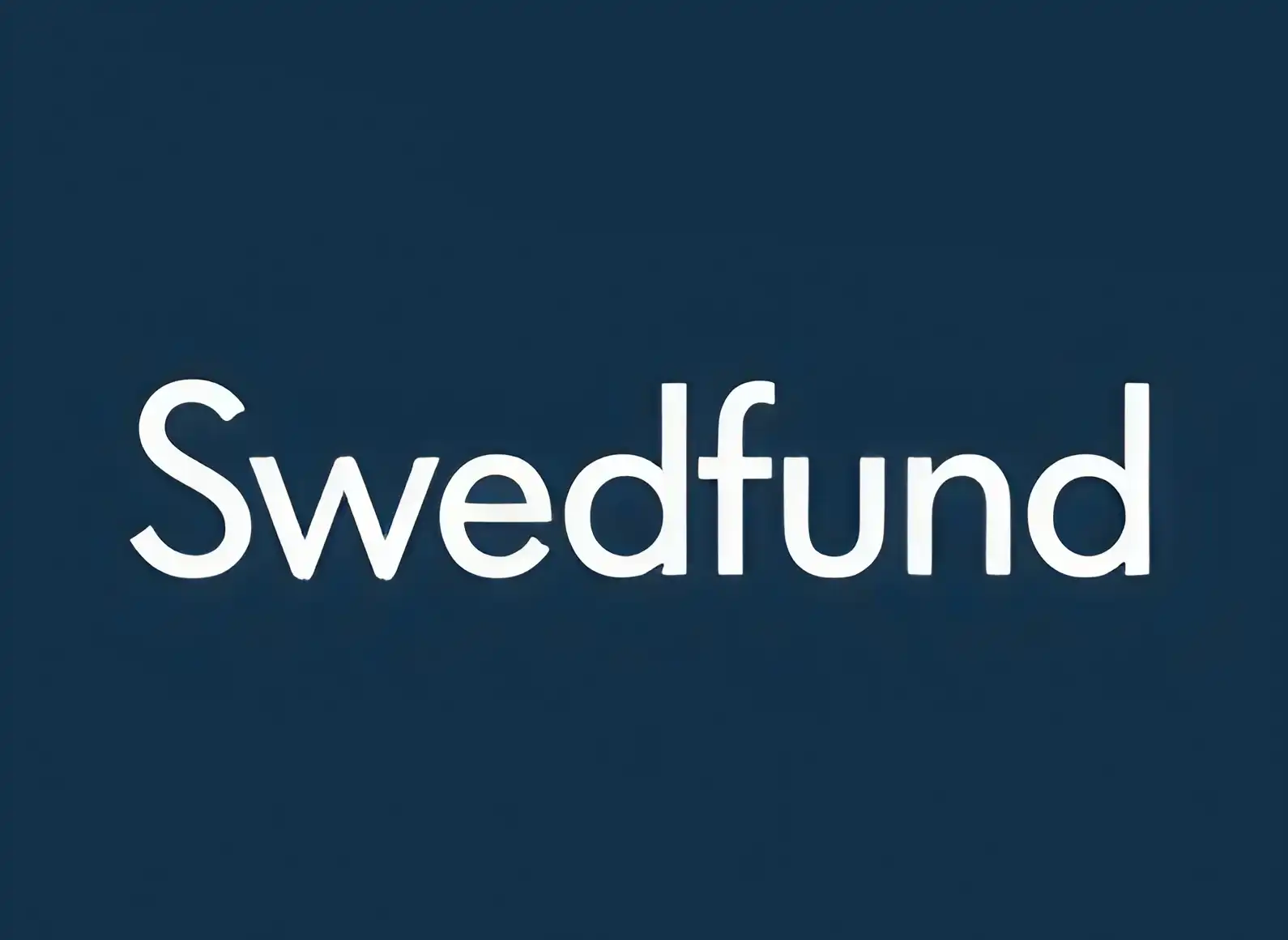
Swedfund invests EUR 26 million in AfricInvest’s Financial Inclusion Vehicle (FIVE), a platform designed to support financial institutions across Africa. The investment aims to increase access to financial services for underserved individuals and small businesses, with a focus on digital innovation, economic empowerment and inclusion.
Today, only a fifth of the African population has access to formal banking services. Limited access to finance restricts entrepreneurship, job creation, and the ability to absorb economic shocks. Swedfund’s investment addresses this gap by supporting financial institutions that are expanding outreach and developing inclusive financial products, especially through new technology and digital solutions.
– Our investment in FIVE further strengthens our engagement to improve access to banking and other financial services in underserved communities. This in turn spurs job creation and growth. We are also able to strengthen financial institutions and the development of innovative financial services, says Jakob Larsson, Senior Investment Manager at Swedfund.
Through FIVE, Swedfund will strengthen the capital base of select financial institutions across Africa, enabling them to grow and reach more clients. The investment also supports FIVE’s commitment to gender equality and women’s empowerment, creating positive change within its portfolio companies and communities. By investing in a mix of traditional and digital-first financial service providers, including banks, insurers, and fintechs, Swedfund aims to catalyse more inclusive financial ecosystems, driving job creation and economic growth across the continent.
FIVE stands for Financial Inclusion Vehicle and was established in 2017 by AfricInvest. Other investors include the Norwegian, Danish, Dutch, German and Belgian Development Finance Institutions as well as African multilateral development institutions and pension funds.
Investing
Swedfund invests in African SME Fund

Swedfund has committed EUR 15 million to the AfricInvest Small Cap Fund, a private equity initiative focused on supporting small and medium-sized enterprises (SMEs) across Africa.
SMEs are a cornerstone of economic development, driving job creation and innovation. However, many companies face significant barriers to accessing capital. This indirect investment can enable more growth-oriented investments to unlock the full potential of SMEs in Africa.
This investment will allow Swedfund to expand its support for underserved businesses across Africa. AfricInvest aligns its investments with measurable sustainability outcomes, allowing us to drive economic growth, create jobs and promote greater inclusion. At the same time we set new benchmarks for responsible investing, says Sofia Gedeon, Investment Director for Sustainable Enterprises at Swedfund and continues;
With decades of experience and a strong presence across the continent, the fund aims to invest in a range of sectors including agribusiness, healthcare, education, consumer goods, manufacturing and services, and is therefore well positioned to contribute to economic growth and social development.
AfricInvest integrates environmental, social and governance (ESG) principles with a focus on gender equality and sustainability. The fund aims to invest at least 30 percent of its portfolio in companies that are women-led or have significant female ownership. Moreover, climate-related objectives will be embedded in the investment process. Swedfund’s support will help ensure that African SMEs have the resources and guidance they need to grow responsibly and effectively.
-
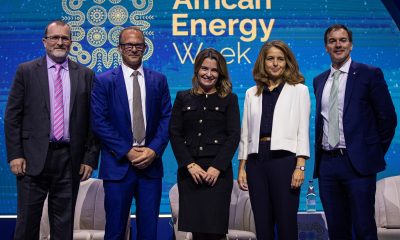
 Oil and Gas2 days ago
Oil and Gas2 days agoTotalEnergies, Chevron Push for Faster Permits, Better Seismic Data in Africa
-
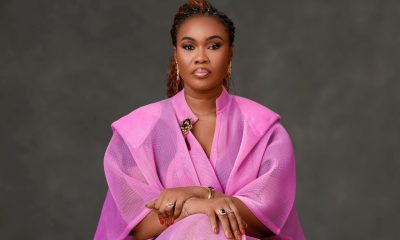
 Afripreneur15 hours ago
Afripreneur15 hours agoRevolutionizing Cross-Border Payments in Africa: An Exclusive Interview with Onyinye Olisah
-

 Energy3 days ago
Energy3 days agoUnited States (U.S.) Political Will, African Reforms Signal New Era for Energy Investment













